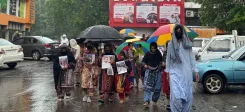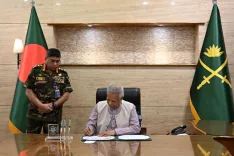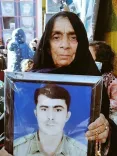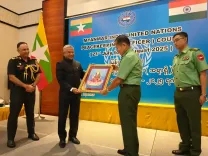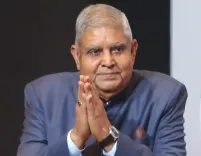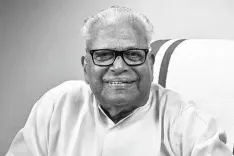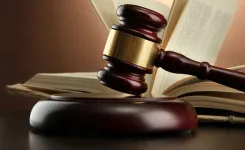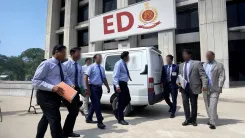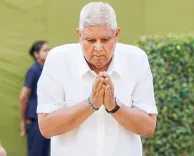Why Have Yoon Suk Yeol and Kim Keon Hee Been Summoned for Questioning?
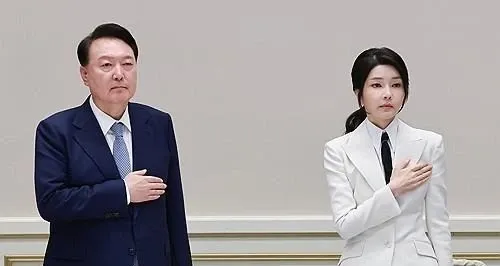
Synopsis
Key Takeaways
- Yoon Suk Yeol and Kim Keon Hee summoned for questioning.
- Allegations include election interference and irregularities.
- Previous indictments raise concerns about political accountability.
- Legal proceedings may impact future elections.
- Public scrutiny of political leaders is essential.
Seoul, July 21 (NationPress) The special counsel team in South Korea announced on Monday that it has summoned former President Yoon Suk Yeol and former first lady Kim Keon Hee for questioning regarding accusations of election interference and various irregularities.
Special counsel Min Joong-ki dispatched a summons to the Seoul Detention Centre, where Yoon is currently incarcerated, requesting his attendance as a suspect at 10 a.m. on July 29, according to assistant special counsel Moon Hong-ju during a press briefing.
The team also sent a summons to Kim's home, asking her to appear as a suspect at 10 a.m. on August 6, he added.
Kim is anticipated to face inquiries regarding her alleged participation in two distinct stock price manipulation schemes, her supposed acceptance of luxury items from a shaman, and her alleged influence on election nominations, as indicated by a team official.
Yoon, too, is under suspicion for interfering in electoral nominations, as reported by the Yonhap news agency.
On July 19, a special counsel team indicted former South Korean President Yoon Suk Yeol on charges of abuse of authority related to his brief imposition of martial law.
This marks Yoon's third indictment during his detention, following earlier ones in January and March associated with his martial law declaration on December 3 and other power abuse allegations.
Under the leadership of special counsel Cho Eun-suk, Yoon is accused of infringing on the rights of Cabinet members during the martial law deliberation, retroactively drafting the martial law declaration, ordering the deletion of records from encrypted devices, and other offenses.
On Friday, a court upheld Yoon Suk Yeol's arrest petition, maintaining his custody due to his unsuccessful attempt to enforce martial law.
The Seoul Central District Court made this ruling after a hearing that assessed the legality of Yoon's arrest and the necessity for its continuation.

